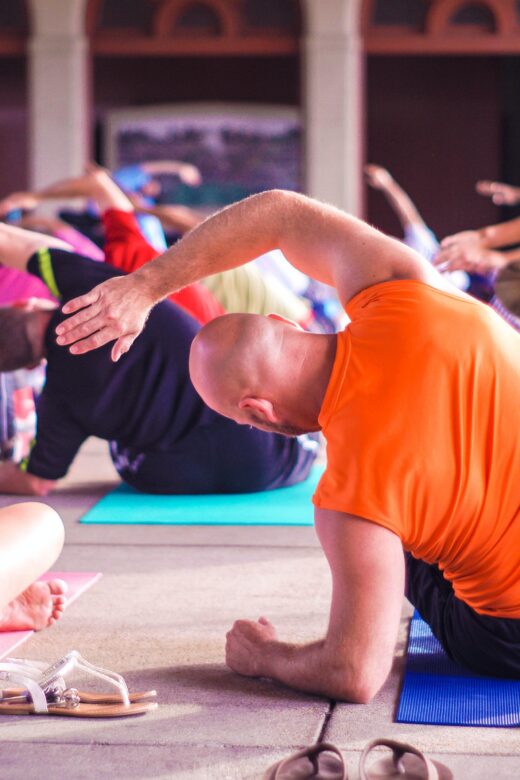If you are looking for something to create a beautiful body and a beautiful mind, try exercising.

What are the psychological advantages of exercise?
Exercise is much more than just aerobic ability and muscular mass. Yes, training may enhance your physical health and physique, help you lose weight, add years to your life, and possibly improve your sexual life. However, it differs from what inspires most individuals to keep active.
People who exercise daily do so because it gives them tremendous well-being. They have more energy throughout the day, sleep better at night, have more precise memory, and are more calm and optimistic about themselves and their life. It’s also an effective treatment for various common mental health issues.
Exercise regularly can have a profoundly favorable influence on depression, anxiety, and ADHD. It also reduces stress, enhances memory, promotes sleep, and improves general mood. According to research, even small quantities of exercise can have a significant effect. You don’t have to be a fitness enthusiast to gain the benefits. You can utilize practice as a reliable tool to deal with mental health issues, increase your energy and attitude, and get more out of life, regardless of age or fitness level.
Depression and exercise
In addition to alleviating depression symptoms, research suggests that exercising can help you avoid relapsing. According to studies, exercise can treat mild to moderate depression as efficiently as antidepressant medication—but without adverse effects. Jogging for 15 minutes a day or walking for an hour reduced the risk of severe depression by 26% as reported in several studies.
Exercise is an effective antidepressant for numerous reasons. Most significantly, it stimulates all brain changes, including neuronal development, decreased inflammation, and new activity patterns that enhance sensations of peace and well-being. It also causes the production of endorphins, which are potent chemicals in your brain that stimulate you and make you feel happy. Finally, exercise can function as a diversion, allowing you to find some peace and quiet to stop the loop of negative thoughts that feed sadness.
Anxiety and exercise

Exercise is a safe and effective natural anti-anxiety medication. It reduces tension and stress, increases physical and mental vitality, and improves overall well-being by releasing endorphins. Anything that gets you moving will assist, but paying attention instead of zoning out can provide a more significant benefit.
Consider the sensation of your feet striking the ground, the rhythm of your breathing, or the feel of the wind on your skin. By including this mindfulness component—really focusing on your body and how it feels as you exercise—you will not only improve your physical condition more quickly, but you may also be able to break the cycle of constant anxieties going through your thoughts.
Stress and exercise
Have you ever observed how your body reacts to stress? Your muscles may be stiff, particularly in your face, neck, and shoulders, causing back or neck discomfort and unpleasant headaches. You may have chest tightness, a hammering pulse, or muscular cramps. Insomnia, heartburn, stomachache, diarrhea, or frequent urination are all possible side effects. These physical symptoms can cause anxiety and pain, leading to even more stress and creating a vicious loop between your mind and body.
Exercising is an excellent method to stop the pattern. Physical exercise, in addition to producing endorphins in the brain, relax muscles and release stress. Because the body and mind are so inextricably linked, when your body feels better, so will your mind.
Physical Activity and ADHD
Regular exercise is one of the simplest and most effective strategies to minimize ADHD symptoms and improve focus, motivation, memory, and mood. Physical activity quickly increases dopamine, norepinephrine, and serotonin levels in the brain, impacting concentration and attention. In this regard, exercise functions similarly to ADHD drugs such as Ritalin and Adderall.
PTSD, Trauma, and Exercise
Evidence shows that simply concentrating on your body and how it feels when you exercise may assist your nervous system in being “unstuck” and moving out of the immobility stress reaction that defines PTSD or trauma. Instead of letting your thoughts wander, pay attention to the sensations in your joints, muscles, and insides when your body moves. Cross-movement exercises that work both arms and legs, such as walking (particularly in sand), jogging, swimming, weight training, or dancing, are among your best options.
Hiking, sailing, mountain biking, rock climbing, whitewater rafting, and skiing (downhill and cross-country) have all been demonstrated to alleviate PTSD symptoms.
Exercise also has other mental health advantages.

Even if you don’t have a mental health condition, regular physical activity can help improve your mood, attitude, and mental well-being.
Exercise can assist with the following:
- Improved memory and reasoning. Endorphins make you feel better and help you concentrate and stay cognitively alert for tasks at hand. Exercise also promotes the formation of new brain cells and aids in preventing age-related deterioration.
- Increased self-esteem. Regularly exercising is an investment in your mind, body, and spirit. It may boost your self-esteem and make you feel strong and powerful when it becomes a habit. You’ll feel better about your looks and a feeling of accomplishment if you complete even tiny workout objectives.
- Improved sleep. Relaxing exercises like yoga or mild stretching might assist in inducing sleep if you like to exercise at night. Even small spurts of activity in the morning or afternoon can aid with sleep regulation.
- More power. Increasing your heart rate multiple times weekly can result in a brand-new you. Begin with a few minutes of exercise daily and gradually increase your routine as you feel more enthusiastic.
- Greater fortitude. When faced with mental or emotional obstacles, athletes and others use exercise to build resilience and cope healthily rather than turning to vices like drugs, alcohol, or other harmful behaviors that exacerbate their symptoms. Exercising regularly helps enhance your immune system and lessen the impact of stress.
This is only part of the discussion. Stay tuned to Part 2, where we talk about more mental health advantages of exercise.
